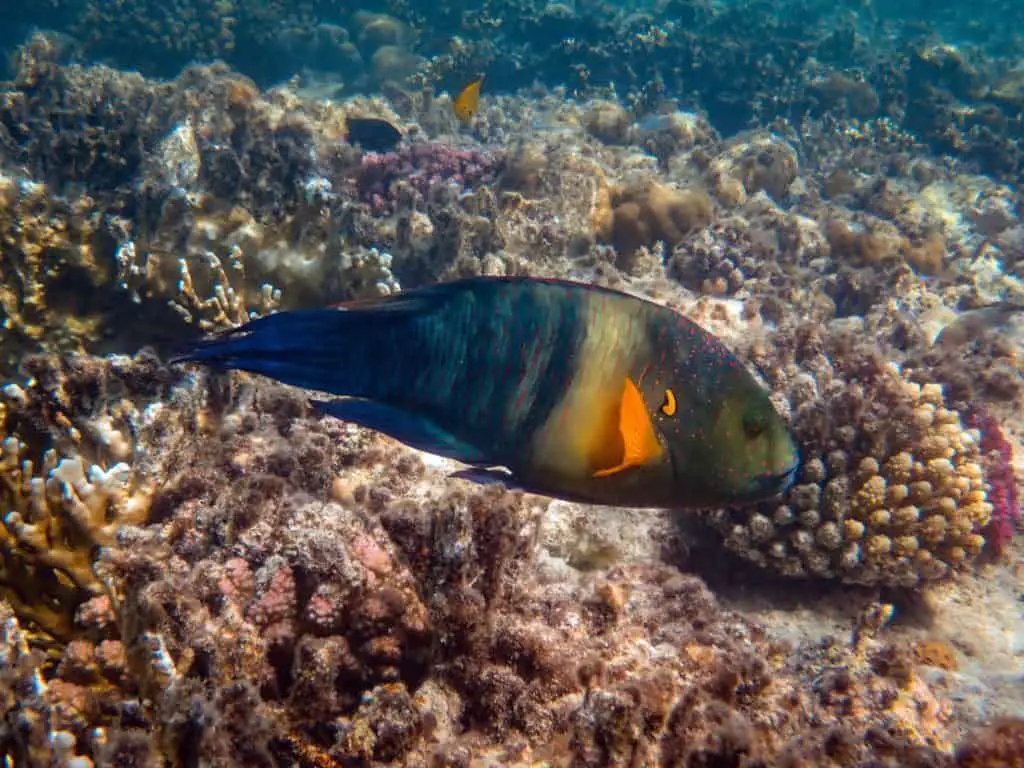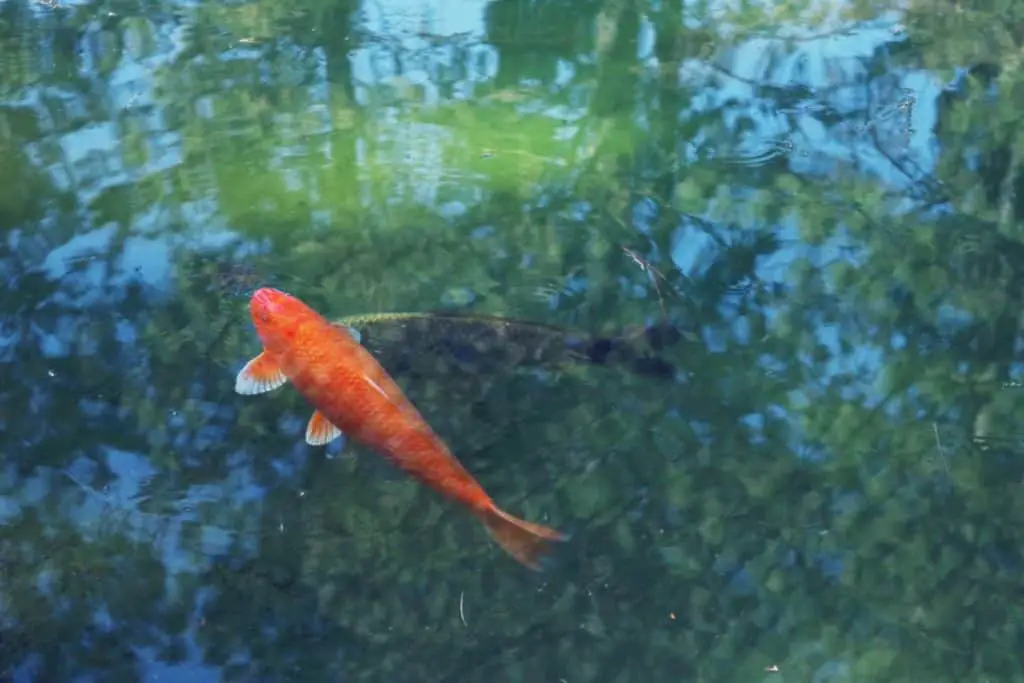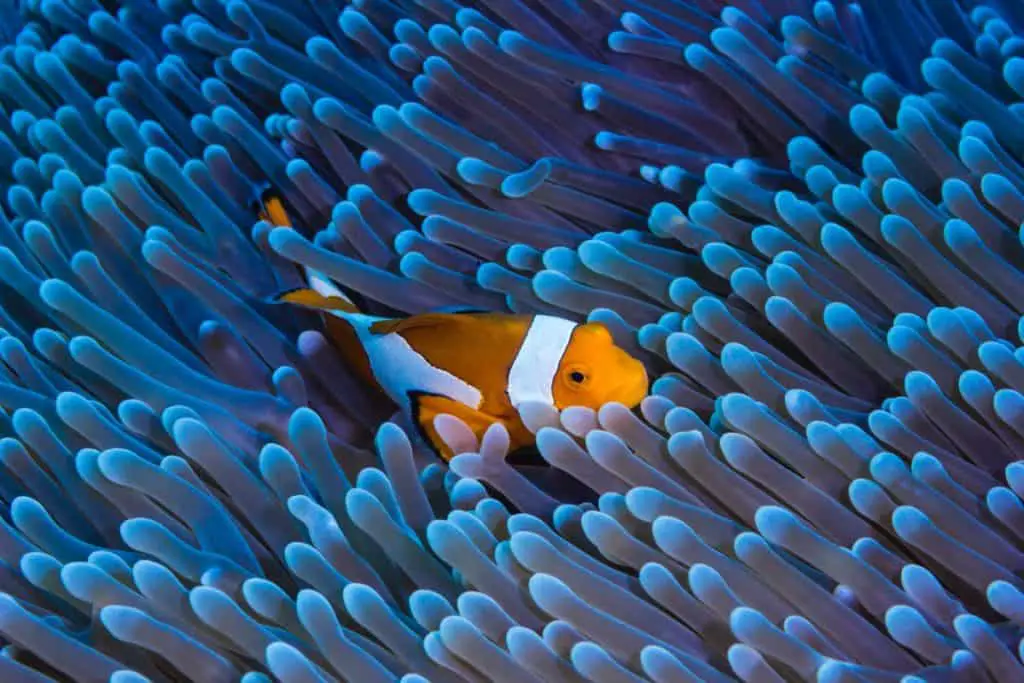
If you want to find out whether fish can be identified as producers, consumers, or decomposers then you’ve come to the right article.
As, in this article, you’ll find the answer to this question and after you’ve read the answer to the main question then I’ll continue sharing the answers to closely related questions to extend your knowledge even more.
I hope you learn a lot from this article!
Is a fish a producer, a consumer, or a decomposer?
Fish are consumers.
They are not producers or decomposers.
A consumer is an organism that feeds upon producers (plants and algae) or other consumers (other animals).
Fish are an aquatic vertebrate class of species within the phylum Chordata.
Most are omnivores, meaning they consume both vegetation and protein from meat, such as insects and smaller fish.
While many scavenge or will opportunistically feed upon decaying animal protein, they are not considered decomposers.
Organisms that are classified as decomposers, such as bacteria and fungi, release enzymes that break down dead plant and animal matter before consuming it.
When fish eat dead plant or animal matter, they do so through the normal process of digestion that is common to vertebrates.
Is a small fish a producer, a consumer, or a decomposer?
Small fish, like fish of any species, are consumers.
Only plants and algae are producers since they directly convert sunlight and inorganic nutrients into usable energy and serve as the basis of the food chain.
This energy is then available in the form of organic matter when animal species eat plants or algae.
Consumers are organisms that feed upon producers or other consumers.
Although small fish often eat microorganisms as well as dead or decaying plant and animal matter, they are not considered decomposers.
Bacterial and fungal decomposers release enzymes that break down organic matter before consuming it, whereas fish and other scavengers digest dead and decaying matter by first consuming it.
The enzyme activity takes place within their digestive systems.
So, they are not producers either.
Is a tuna a producer, a consumer, or a decomposer?
Tuna are consumers.
They constitute a group of fifteen species of large saltwater fish that are found in warm areas of the ocean.
They are predators with sharp teeth and strong jaws, which allows them to eat smaller fish and crustaceans.
The largest species of tuna will also kill and eat squid, octopus, and other large marine animals.
So, tunas are not considered producers or decomposers either.
Is a bass a producer, a consumer, or a decomposer?
Bass is a common name that is applied to a variety of both freshwater and saltwater fish that are Perciformes or “perch-like”.
Like all fish, they are consumers, not producers or decomposers.
Young bass will typically eat insects and plankton.
As they mature, they expand their diet to include small fish, crustaceans, and in some cases birds.

Is a fish a primary consumer?
Certain fish are primary consumers.
A primary consumer is an organism that eats plants or algae, which are producer organisms.
Secondary consumers are those that eat primary consumers.
Most fish are secondary consumers since they are omnivores and eat other animals, ranging from insects to other fish and even birds or mammals.
However, fish that eat only vegetation are considered primary consumers.
Is a pufferfish a primary consumer?
Pufferfish or blowfish are omnivores.
They eat a wide variety of other organisms, including shrimp, worms, mollusks, algae, and sponges.
Since they consume producers, such as algae and plants, they are primary consumers.
However, since they eat other small animals, they are also secondary consumers.
Is a fish a secondary consumer?
Most species of fish are secondary consumers since they eat or scavenge nutrients from primary consumers, such as insects, smaller fish, crustaceans, worms, and so forth.
Any organism that eats an animal that is a primary consumer is considered a secondary consumer.
For example, since much freshwater fish will eat insects or herbivorous fish, they are secondary consumers.
Is a pufferfish a secondary consumer?
Pufferfish or blowfish are omnivores and so they are secondary consumers.
They eat a wide variety of other organisms, including shrimp, worms, and mollusks.
However, since they also eat algae and vegetation, they are both primary and secondary consumers.
Is a fish a tertiary consumer?
Some species of fish, such as muskie, bass, and salmon, are tertiary consumers since they consume secondary consumers.
Primary consumers are organisms that sustain themselves by eating plants or algae, which are producers.
Secondary consumers eat primary consumers, and tertiary consumers eat secondary consumers.
Because they are higher on the food chain, tertiary consumers have larger bodies and must ingest greater amounts of food than secondary consumers.
At the higher trophic levels in the food chain, the energy that was initially created by producers and made available to animals in the food chain gets reduced as primary, secondary, and tertiary consumers are, themselves, eaten.

Is a fish a quaternary consumer?
Some species of fish, such as great white sharks, are quaternary consumers.
Quaternary consumers are predators at the top of the food chain in their ecosystem.
They consume primary, secondary, and tertiary consumers.
Because they are the highest on the food chain, quaternary consumers are very large by comparison to the other animals within their environment, and they must consume a large amount of food to sustain themselves.
Typically, an ecosystem can only sustain a small number of quaternary consumers, especially apex predators.
Apex predators are those that have no natural predators within their environment.
They play an important role in controlling the populations of species that are lower on the food chain.
Is a fish a herbivore?
Some species of fish, such as surgeonfish, are primarily herbivores as they’ll sometimes eat small animals from time to time as well, but most fish are omnivores.
Herbivores are species that primarily or exclusively consume plant matter for sustenance.
There are very few fish species that are obligate herbivores, meaning that they must restrict their diet to plant matter.
Those fish that are herbivores are capable of eating and digesting at least small amounts of animal protein, such as from insects, and most fish are opportunistic feeders that can eat a wide variety of things.
Is a fish a carnivore?
Many species of fish eat meat.
While the majority of fish are omnivores as they eat both meat and vegetation, some are carnivorous.
Tuna, for example, are carnivores, as are some species of shark.
However, many sharks are omnivores and consume a great deal of vegetation.
All carnivorous fish subsist on meat.
An obligate carnivore must eat meat and cannot survive without doing so.
Some of the known carnivorous fish are considered obligate carnivores since they cannot receive nourishment from plant matter.
The type of meat that carnivorous and omnivorous fish eat varies, depending on the species.
Many fish will eat bugs and other fish.
However, tuna, sharks, and some other fish will eat birds and mammals as well.
Some carnivorous fish are suited for aquarium communities, including Arowanas, cichlids, and piranhas.
However, despite their reputation as vicious carnivores, certain piranha species tend to consume more vegetation than meat.
Is a fish an omnivore?
Most fish are omnivores, which means that their diet includes both plant matter and animal protein.
Even some carnivorous fish can sustain themselves, at least for a time, by eating plants.
While some sharks, for example, are technically carnivores, they aren’t obligate carnivores as they can and will eat just about anything.
Many species of sharks are considered omnivorous since their diet includes a great deal of vegetation.

